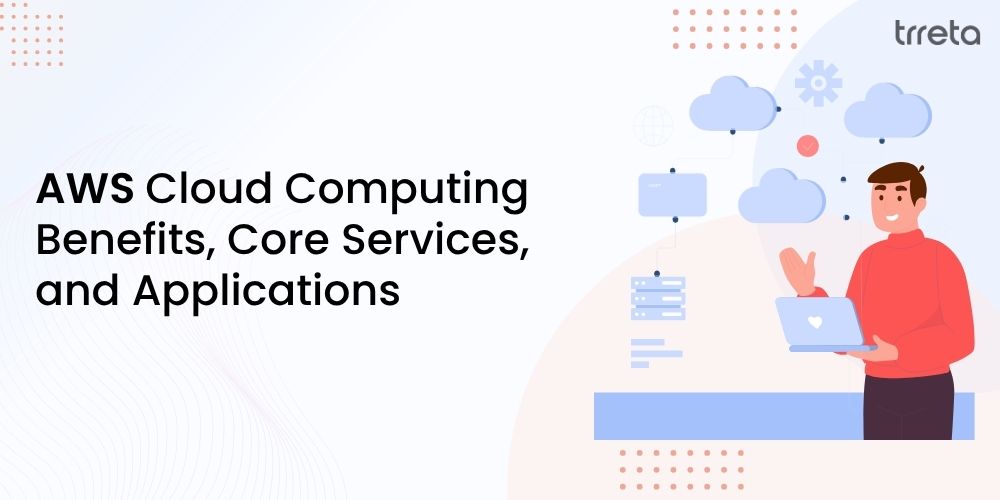For businesses in 2025, cloud computing is no longer a luxury or a trend but has become a foundational pillar.
Whether you're a bootstrapped startup or an enterprise handling petabytes of customer data, the cloud is what keeps your operations scalable, resilient, and cost-effective.
And among cloud platforms, AWS Cloud Computing remains the global leader, and not just in terms of adoption.
What really sets it apart is its vast service ecosystem, proven uptime, and security-first architecture. It's the backbone behind Netflix’s streaming, Airbnb’s traffic surges, and Amazon’s own retail empire.
In this guide, we break down exactly why Amazon AWS Cloud Computing is so trusted, covering its business benefits, key services, and how real companies are applying it today.
If you're evaluating a cloud move or scaling your current setup, this guide is definitely for you.
What Is AWS Cloud Computing?
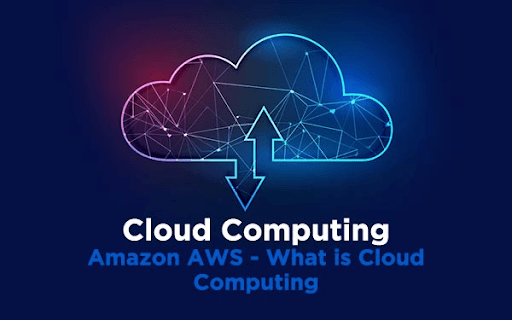
Amazon Web Services (AWS) is the world’s most comprehensive cloud platform. Launched in 2006, it now powers the digital infrastructure of millions of companies - from fintech startups to Fortune 100 giants.
So, what is AWS cloud computing?
In simple terms, it’s an on-demand delivery model for computing services, where servers, storage, databases, and other resources are delivered over the internet.
With data centers in 30+ regions and availability zones across the globe, AWS provides low-latency access to services from nearly anywhere.
What makes it stand out among AWS cloud providers is not just scale, but reliability and constant innovation.
If your company needs to launch quickly, stay online reliably, and innovate without rebuilding infrastructure, AWS is where most leaders start.
Other than these, AWS has many more benefits to offer, as mentioned below -
Top 7 Business Benefits of AWS Cloud Computing
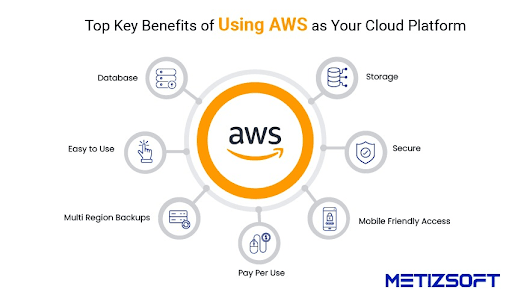
Here are the top advantages of AWS that you can’t ignore as a business owner -
1. Scalability on Demand
Let’s say if your website or app traffic goes high, AWS has capabilities to scale automatically. So, whether you're running an eCommerce sale or processing millions of records during tax season, AWS expands capacity without you touching a server.
2. Cost-Efficiency with Pay-as-You-Go Model
Another amazing benefit of AWS is that you only pay for what you use. No need to overinvest in infrastructure “just in case.” AWS’s pricing model makes experimentation affordable, especially for lean teams.
3. High Availability and Uptime
AWS offers industry-leading uptime Service Level Agreements (SLAs). Plus, built-in redundancy across global availability zones means your services stay up, even when regional disruptions happen.
4. Global Infrastructure and Edge Locations
With edge servers via CloudFront, AWS delivers content faster to end-users. Whether your customers are in Chicago, Sydney, or Nairobi, speed stays consistent.
5. Data Security & Compliance
Security is the highest concern and priority for any business, and AWS ensures it the best with encryption to multi-factor authentication. And the best part is - you don’t need to worry about the compliance with PCI DSS, HIPAA, ISO, and more.
6. Faster Time to Market
If you are planning to launch your app, web, or project faster, AWS can help you with that as it has DevOps tools, serverless architectures, and pre-built service templates!
7. Innovation with AI/ML, IoT, Blockchain, and More
Lastly, AWS isn’t just about hosting; it’s a springboard for emerging tech. From SageMaker for machine learning to AWS IoT Core and managed blockchain services, it empowers teams to build future-ready apps.
👉 At Trreta, we help businesses unlock these benefits through tailored AWS cloud computing services - from migration to custom architecture design.
Lately, if you have been hearing a lot about AWS CloudFormation and wondering what it is, keep reading!
What Is AWS CloudFormation? (Bonus Insight)
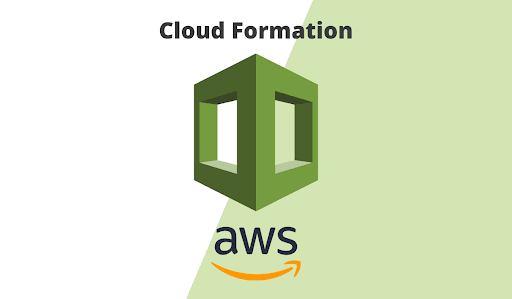
What is AWS CloudFormation?
It’s a tool that lets developers automate infrastructure setup using simple text templates (YAML or JSON).
Think of it like a blueprint for spinning up entire cloud environments - servers, databases, permissions, and all.
So, instead of manually configuring services every time, CloudFormation allows businesses to replicate secure, consistent environments at scale. It’s a huge time-saver, especially in teams running CI/CD pipelines or needing multi-region deployments.
And yes, it also helps reduce human errors that often creep in during manual configuration.
Now that you know what is AWS CloudFormation, let’s have a look at some of the most popular, essential, and highly used AWS services!
5 Core AWS Service Categories You Should Know About
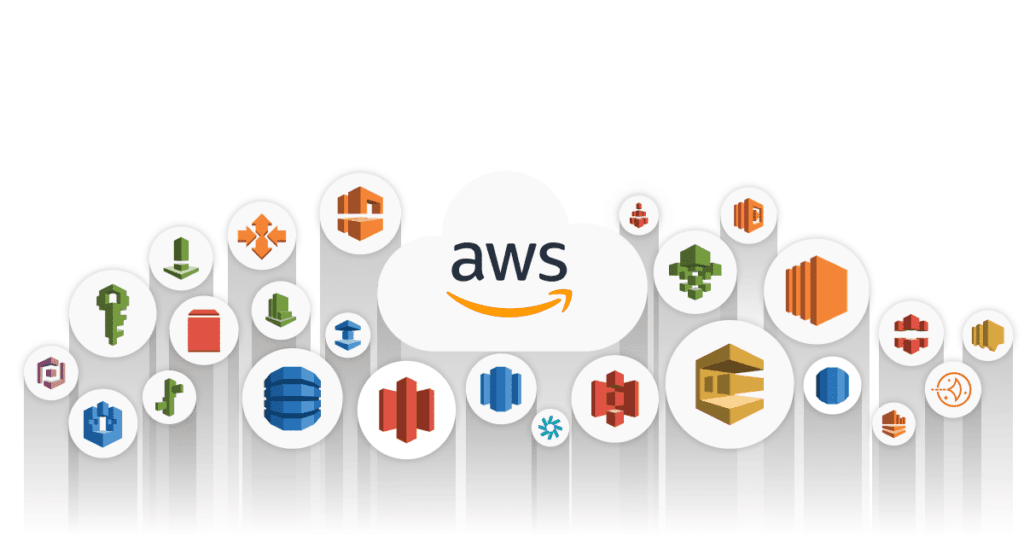
There are many categories that fall under the AWS services, as mentioned below -
A. Compute
- Amazon EC2 for virtual servers
- AWS Lambda for serverless functions
And both of these are used for running dynamic workloads, APIs, or microservices without managing servers.
B. Storage
- Amazon S3 for object storage
- Glacier for archival backups
- EBS for block storage
These services are used for hosting images, videos, user files, and backups securely and at scale.
C. Databases
- Amazon RDS for relational databases
- DynamoDB for NoSQL
- Redshift for data warehousing
AWS databases are used for apps that need fast, reliable, managed database solutions.
D. Networking
- VPC for private networks
- CloudFront for global content delivery
- Route 53 for DNS management
The networking services of AWS ensure secure, fast, and globally routed traffic flows.
E. Security
- IAM for access management
- AWS Shield for DDoS protection
- CloudTrail for audit logging
These AWS services are used for meeting industry compliance standards while protecting data integrity.
All of these categories represent the foundation of most cloud services provided by AWS, and they’re highly modular, so you can mix and match as your needs evolve.
Let’s bring theory to life by looking at some of the examples of real-world
Real-World Applications of AWS Cloud Computing
Here are some common applications of AWS cloud computing in the real world -
- SaaS Platforms: Be it CRMs or email marketing tools, most modern SaaS products use AWS to scale seamlessly.
- eCommerce Stores: Shopify and similar platforms rely on AWS for uptime during sales events.
- Streaming Services: Think Netflix. Heavy traffic, media delivery, and personalization - all of that is handled via AWS.
- Fintech Applications: If you are a fintech company, you can handle transactions, credit scores, or KYC with AWS’s compliance and real-time data tools.
- AI/ML Solutions: Finally, if you want to deploy machine learning models without building infrastructure from scratch, you can use tools like Amazon SageMaker to make it smooth!
👉 Found this interesting and want to leverage AWS Cloud Computing services? Get in touch with our team today to build solutions that are fast, secure, and meant for growth!
When Should You Choose AWS as Your Cloud Provider?
So, after getting all the required information about AWS services, if you are wondering whether AWS services are right for you, here’s how you can find it out -
- You need global reach with local speed
- You plan to scale fast without buying or maintaining hardware
- You require strong data compliance and security
- You want to tap into next-gen tech like Generative AI, IoT, or blockchain, without rebuilding your backend
So, if you meet any of the criteria mentioned above, AWS services is the right choice for you!
Build and Manage Custom Apps Using AWS and Trreta Partnership!
Today, AWS Cloud Computing is the foundation of digital transformation for many ambitious businesses.
From fast deployments to intelligent automation, it opens the door to smarter, more flexible systems.
And if you're considering the move to the cloud or want to optimize your existing environment, contact us at Trreta Techlabs. We help businesses like yours build, manage, and scale with AWS without the confusion or technical sprawl.
FAQs
Q1. What is AWS, and what are its core services?
AWS (Amazon Web Services) is a cloud platform offering services like compute, storage, databases, networking, and AI to help businesses scale and innovate.
Q2. What is the main benefit of deploying applications on AWS?
The biggest value of AWS services lies in agility. Your team can launch, scale, and iterate quickly without managing physical infrastructure.
Q3. What is AWS CloudFormation used for?
AWS CloudFormation is used for automating infrastructure provisioning using templates that save time and reduce deployment errors.
Q4. What is the difference between AWS and other cloud providers?
The major difference between other cloud providers and AWS is that AWS is a leader when it comes to service range, global reach, and market maturity. Plus, it has a strong support team and a big community.
Q5. Can AWS help startups scale globally?
Yes, AWS’s pay-as-you-go model and global infrastructure make it ideal for startups aiming for fast growth without overinvesting upfront.
